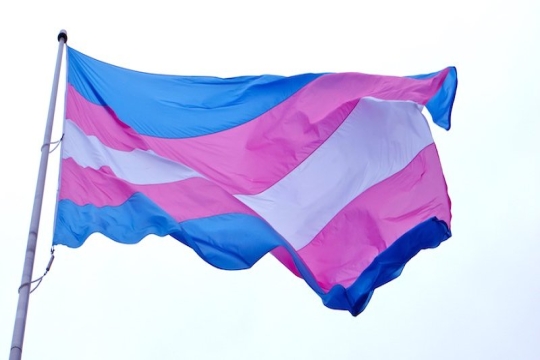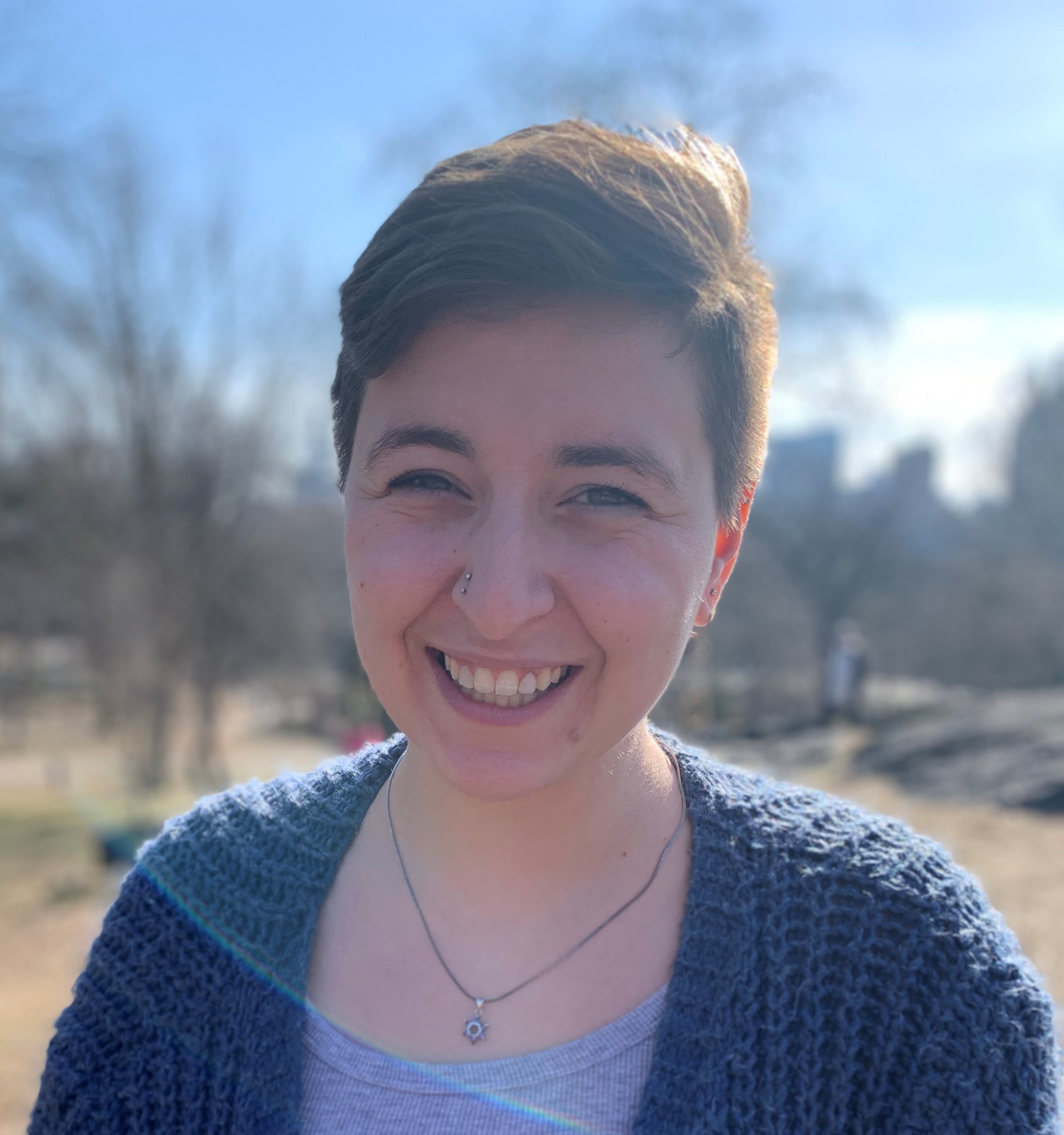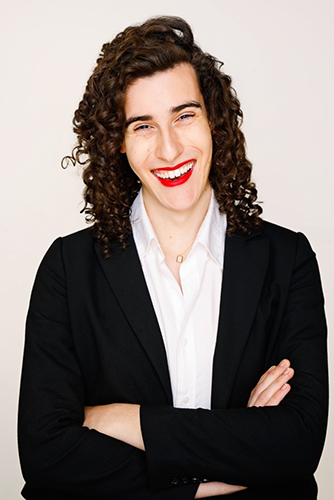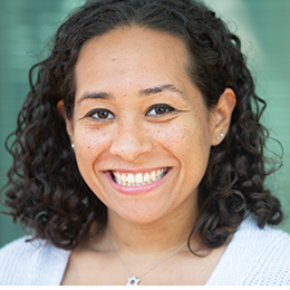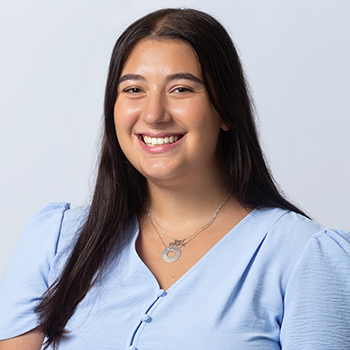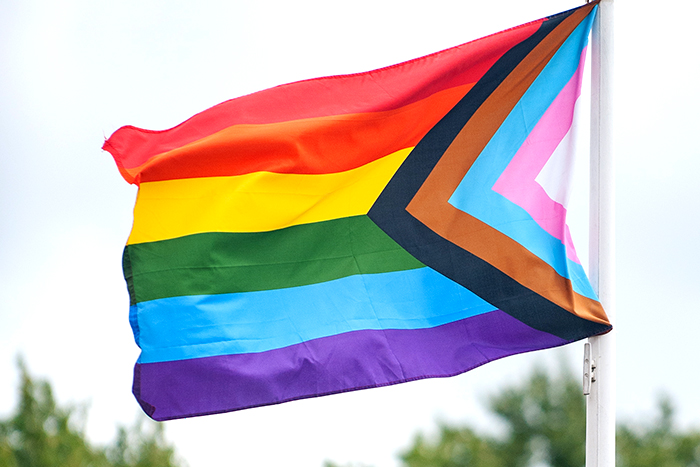
Every year between November 13 and 19, people and organizations around the country participate in Transgender Awareness Week to “help raise the visibility of transgender people and address issues members of the community face.” Transgender Awareness Week is a chance to educate the public. It is important for people who are not part of the trans community to understand the oppression transgender and gender-expansive people face every day. While it is always important to affirm trans identities, Transgender Awareness Week provides an opportunity to center the voices of trans and gender-expansive people. Below are some important reflections from several trans and gender-expansive members of the Reform Jewish community on what this week means to them.
“My favorite part about being Jewish is the emphasis on questioning. Nothing is taken for granted. Every Passover we ask, "Why is this night different from all the other nights?" In the Torah, God asks, "Where are you?" Before praying, we ask "Am I awake? Am I prepared?" We encourage students to ask big questions, like "What happens after we die?" or "Do I believe in God?" Therefore, it feels natural for me to question parts about myself- including my gender identity. Just like all of my beliefs, my gender identity transformed- and will continue to evolve- over time. I engage with the study of Jewish text and tradition just as I engage in the study of myself.
This Trans Awareness Week, and always, it is important to remember these questions are deeply personal. Before you ask someone else about their journey with gender, remember the essential question: "Do I need this information?" Preventing microaggressions and creating spaces of inclusion provide the space myself and other Trans/Non-binary Jews need to succeed, grow, and learn.”
- Kelly Whitehead (she/they), rabbinical student at Hebrew Union College-Jewish Institute of Religion ('24)
"I have come out many times as a trans/non-binary person. I first came out in 2018 as a non-binary person. I was at the URJ 6 Points Creative Arts Academy, where we received a staff training session from a Jewish LGBTQ+ organization, and learned about the term “non-binary”. The next day, in another training session, we wrote down our names and pronouns (words we use to describe each other in the third person) on name tags. I wrote down my birth name and “he/him” pronouns, and when I stuck it onto my chest, something felt… off. I took off the name tag, looked at it, and underneath “him/him” I wrote “they/them”, and put that back onto me. It didn’t feel right, per say, but it felt less wrong.
That coming out, and those following, have led to self-education about what it means to be a transgender/non-binary person. I’ve learned a lot both through research and lived experience, but something I’ve noticed is people’s desire to understand my identities. Questions have been asked like, “what does it mean to be transfemme?" and “why does your gender identity change so frequently?”. If I had to label my gender, I would say I am currently a non-binary/genderqueer person and use they/she pronouns, but it can become tiresome to constantly explain my identity to people (who, it should be said, are well-meaning in their curiosity and wanting to be educated on LGBTQ+ terms, topics, and issues).
One does not have to fully understand someone’s identity in order to respect them. There are times when I am happy to explain myself and help cisgender and straight allies better understand the LGBTQ+ community. There are other moments where I kindly direct them to websites that can help answer their questions. Regardless of where and when they get the information, I hope that the underlying mutual respect lives through it all. And, if someone is having a difficult time processing one’s gender identity journey, they should not process it with the person going through the journey unless there is explicit confirmation that it is okay to do so.
As we continue to raise awareness on and learn about the transgender/non-binary community, let’s do so with open hearts, minds, and ears. I encourage allies to do their own research when they have a question just as much as they would ask a trans/non-binary person. Also, it’s okay to mess up regarding information! We are all still learning and growing as people. Let’s do so together."
- Eliana Rubin (they/she), candidate for a Masters of Educational Leadership at Hebrew Union College-Jewish Institute of Religion ('22).
I was at Sinai
By Hannah Bender (they/them/theirs), rabbinical student at Hebrew Union College-Jewish Institute of Religion ('25)
I was at Sinai
When I say “I was at Sinai”
I mean all of me
I was there, in all my transness
I was there, complete
I was there, myself
Created and recreated
With permission and excitement from my divine
There at the foot of the mountain
With all my siblings
God saw me
When I say, “God saw me”
I mean all of me
God saw
God Sees
Sees me in my transness, my wholeness
Sees my creation and recreation
God lends permission and excitement
And smiles
From Sinai until now
As we observe Transgender Awareness Week, here are some next steps you can take to learn more and take action for LGBTQ+ rights. Normalizing pronouns and other behaviors can have a life-saving impact on transgender and gender expansive individuals, especially youth.
- Transgender Awareness Week culminates with the observance of Transgender Day of Remembrance on November 20. According to the Human Rights Campaign, 2021 is the most violent year on record for transgender and gender non-conforming people, with 45 fatalities as of November 2021. Learn more about this day and how you can observe it in the Jewish community.
- Review and use the URJ Quick Guide to Pronouns to learn how to incorporate pronouns into your everyday life. Normalizing pronouns and other behaviors can have a life-saving impact on transgender and gender expansive individuals, especially youth.
- Trans Inclusion Resource Guide from the URJ & Keshet.
- Urge the Senate to swiftly pass the Equality Act to provide civil rights protections for all LGBTQ+ people.
- Watch the URJ’s Transgender Inclusion Webinar from June 2021
- Take a look at the important work being done about gender inclusion by NFTY.
- Read "Why Pronouns are So Important - and Why Using the Right Ones is So Jewish."
Learn more about the Reform Jewish Movement's work for full LGBTQ+ equality.
Related Posts
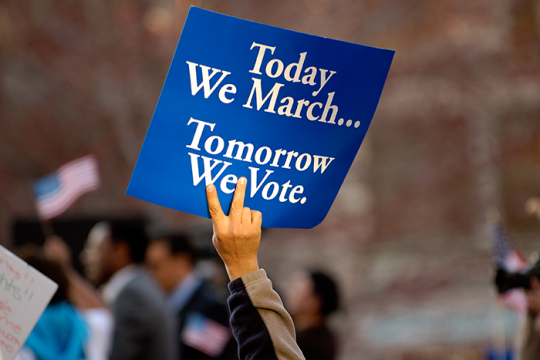
In the Footsteps of John Lewis: Why We Continue to March for Democracy
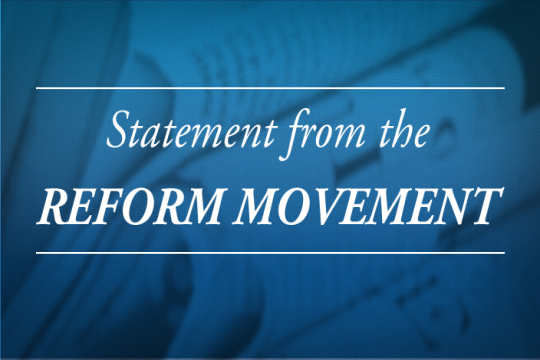
A Letter to the 118th Congress
